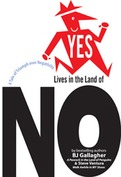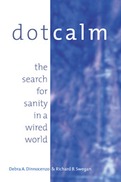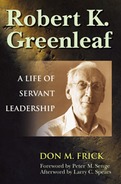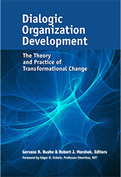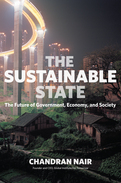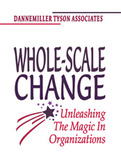Whether you're applying for a job, making a request, looking for a house, dating to find the right mate, seeking some type of approval, selling a product or an idea (or yourself), or trying to organize others into getting something accomplished, you're going to encounter rebuffs and resistance. What can you do to overcome so much negativity?
This wise, insightful parable follows our hero who ventures into the Land of NO in search of YES. He watches well-intentioned characters flounder and fail—while noticing other characters using different approaches and achieving success. Our observant hero learns from others' experiences, as well as his own.
Through his journey, you will discover how you, too, can persist in the face of frequent NOs — both the NOs uttered by people around you and, perhaps more importantly, the insidious NOs whispered by your own inner voices.
The second half of the book takes you from parable to practice—with proven tips, tools, and strategies to help you persevere, develop tenacity, persist in the face of rejection, and overcome the inertia of the status quo. Taken together, the two parts of this book provide a how-to manual that's both practical and entertaining. It will help you find the YESes you seek—faster, more effectively, and with a lot less discouragement and despair in the process.
- Cowritten by the authors of the international bestsellers A Peacock in the Land of Penguins (more than 250,000 copies sold) and Walk Awhile in MY Shoes (more than 750,000 copies sold)
- A lively parable that tackles a tough subject--how to overcome negativity to find success, happiness, and affirmation
- Includes practical tips, tools, and strategies to help readers apply the lessons of the parable in their personal and professional lives
- Listen to a podcasted interview with BJ Gallagher on Total Picture Radio
2001
For everyone who yearns to simplify life, slow down, and get centered, all without compromising their career, Dot Calm offers more than hope-it offers answers. Based on the authors' in-depth interviews and survey results, Dot Calm outlines a wide variety of proven tactics that real people in all walks of life are using to cope with the ubiquitous problems of information, access, and work overload. This book provides an unprecedented chance to leverage the success strategies of people who have managed to sever the "electronic tether" that kept them constantly bound to their jobs.
Dinnocenzo and Swegan show that you don't have to sacrifice productivity or efficiency to have a sane, balanced life. On the contrary-technology can so overwhelm people with data that they have a hard time focusing on those activities that truly matter. Unplugging will actually make you more effective.
- Provides detailed, practical solutions to the problems of information, access, and work overload
- Offers real-life examples of individuals who have managed to reclaim their lives without compromising their careers-and tells how they did it
- Shows organizations alternative approaches to increasing productivity without overloading workers
2004
This long-awaited biography of Robert Greenleaf, authorized by his surviving children, finally tells his story. Drawn from Greenleaf's personal papers, correspondence, and interviews with family and friends, it provides a fascinating look at the sources of Greenleaf's thought, his friendships with some of the most influential men and women of the twentieth century—including Eleanor Roosevelt, Peter Drucker, the Menninger brothers, Reinhold Niebuhr, Aldous Huxley, Alcoholics Anonymous co-founder Bill Wilson, and many others—and how he influenced business history well before his first book was published at the age of seventy-three.
At a time when leadership and management fads substitute as wisdom, Robert Greenleaf's life stories provide clues for how each person can make a difference in the workplace, no matter what position he or she holds.
- The first biography of Robert Greenleaf, originator of the immensely influential concept of "servant leadership" which plays a crucial role in the writings of today's most important business thinkers and has had an major impact on organizations of all types
- Explores the origin, development, basic concepts, and practical applications of the idea of servant leadership
- Greenleaf maintained friendships with some of the most important men and women of the twentieth century, including Eleanor Roosevelt, Peter Drucker, the Menninger brothers, Reinhold Niebuhr, Aldous Huxley, Alcoholics Anonymous founder Bill Wilson, and many others
- Includes a foreword by Peter M. Senge
Dialogic Organization Development is a compelling alternative to the classical action research approach to planned change. Organizations are seen as fluid, socially constructed realities that are continuously created through conversations and images. Leaders and consultants can help foster change by encouraging disruptions to taken-for-granted ways of thinking and acting and the use of generative images to stimulate new organizational conversations and narratives. This book offers the first comprehensive introduction to Dialogic Organization Development with chapters by a global team of leading scholar-practitioners addressing both theoretical foundations and specific practices.
In this sure to be controversial book, Chandran Nair shows that the market-dominated model followed by the industrialized west is simply not scalable. The United States alone, with less than five percent of the world's population, consumes nearly a quarter of its resources. If countries in Asia, where 60% of the world's population lives, try to follow the Western lead, the results will be calamitous. .
Instead, Nair argues that development must be directed by a state that is willing and able to intervene in the economy . Corporations, which by design demand ever-expanding consumption, need to be directed towards meeting societal needs or otherwise restrained, not unleashed. Development has to be oriented towards the greatest good—clean drinking water for the many has to take precedence over swimming pools for the few. He provides three compelling case studies demonstrating the benefits of such strong state governance and the findings of weak state governance.
This will mean rethinking the meaning of concepts like “prosperity,” “freedom,” and “rights,” and whether democracy is always the best way to ensure responsive government—as Nair writes, “A democracy that cannot work to improve the life of its citizens is not better than a non-democracy that can actually improve quality of life.” Many people will find these to be challenging ideas, but what Nair offers is a model suited to the realities of the developing world, not the assumptions of the dominant culture.
2000
- Written by pioneers in the field of large scale organizational change, sharing the knowledge of nearly two decades of Dannemiller Tyson Associates' experience consulting to organizations worldwide
- Combines systems theory with a practical methodology for initiating, implementing, and sustaining an organizational change effort
- Reveals key processes that are proven, durable, and effective for anyone thinking about change in organizations or communities
- Written by pioneers in the field of large scale organizational change, sharing the knowledge of nearly two decades of Dannemiller Tyson Associates' experience consulting to organizations worldwide
- Combines systems theory with a practical methodology for initiating, implementing, and sustaining an organizational change effort
- Reveals key processes that are proven, durable, and effective for anyone thinking about change in organizations or communities
PEOPLE IN ORGANIZATIONs of all types-public and private, large and small-have for years had to wrestle with the formidable challenge of successfully planning and implementing changes in how they do business. Today, the demand for faster approaches is increasing across a broad spectrum of organizations in business and society, as they are faced daily with an array of change mandates-new business strategy development and deployment, merger and acquisition integration, work re-design, community organizing, and more. Traditional command and control structures and processes no longer enable and mobilize people in organizations-the rapid rate of change in the environment demands new and different ways for organizations to respond.
Whole-Scale Change: Unleashing the Magic in Organizations combines systems theory and practical methodology to offer a proven, flexible approach that leads to aligned action by hundreds, even thousands of people-and creates powerful processes for change. Shattering the old paradigm about how long it takes organizations to change, the book shows how to rapidly engage the whole system in meeting organizational agility and flexibility demands. It offers adaptable, repeatable strategies for different settings and convening issues through the authors' unique Whole-Scale approach-which has been successfully applied in diverse businesses and industries, the service sector, health care, education, government, other nonprofits, and communities throughout the world.
Imagine everyone in your organization pulling in the same direction, everyone with the same information, acting quickly to solve the problems and confront the issues facing your organization. Whole-Scale Change provides not only the theories and principles underlying the approach, but also the practical methods, tools, and road maps for unleashing the energy and combining the power and wisdom of all the people in an organization.
- Written by pioneers in the field of large scale organizational change, sharing the knowledge of nearly two decades of Dannemiller Tyson Associates' experience consulting to organizations worldwide
- Combines systems theory with a practical methodology for initiating, implementing, and sustaining an organizational change effort
- Reveals key processes that are proven, durable, and effective for anyone thinking about change in organizations or communities


